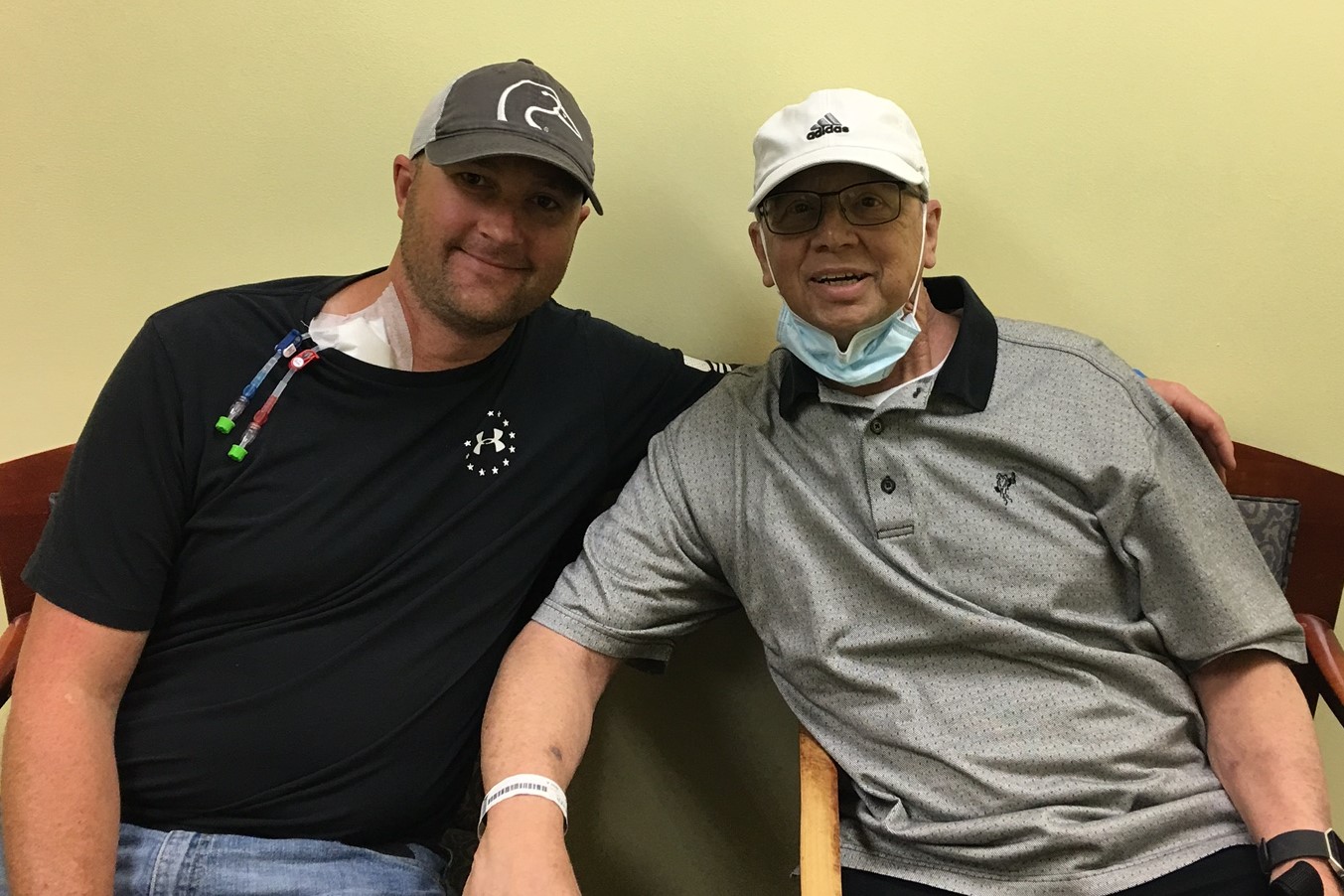
David Fussell of Canton says he’s always considered himself healthy, but in February 2019 he began experiencing unexplained fatigue. He and his wife Barbara had a cruise to the Panama Canal booked for late March.
“I knew I was sick but did not think it was serious,” David explained. “My fatigue became worse. I could not walk up one flight of steps without sitting down to rest, and my appetite was terrible. I might have been one of the few passengers on a cruise who lost weight.”
David called his doctor from the ship and scheduled an appointment for the day after he returned home.
At that appointment, David’s doctor suspected leukemia. Several blood tests and a bone marrow biopsy were ordered.
“When I arrived at the hospital [for the bone marrow biopsy], I was so weak, I could not walk the 100 feet … to the nurse’s station; I had to use a wheelchair,” David said. “The nurses told me my blood count was very low and they would give me two units of blood as soon as I got out of recovery.”
David’s biopsy confirmed leukemia. Barbara researched oncologists and made an appointment for David with Georgia Cancer Specialists’ Dr. Navneet Dhillon. Dr. Dhillon told David that his condition required him to be admitted to the inpatient Blood & Marrow Transplant (BMT) Unit at Northside Hospital and to expect a call from the hospital soon. David got that call before he left the parking lot. He was told to report at 8 a.m. the next day and to expect to be in the hospital for two to four weeks.
“I had never spent the night in a hospital … it happened so fast; my only reaction was shock,” David said. “I did not know enough to ask questions.”
David spent 33 days in the BMT unit at Northside and says he had “more tests, X-rays, IVs and pills than one could name.” But most difficult was not being able to see his five grandchildren, who were all under 12 at the time, or going to the lobby of the hospital to visit friends.
David says his family was very supportive. Barbara would spend every other night at the hospital with him.
“I could not have made it without her being in my room to talk with the nurses and doctors,” David said.
He also had visits from clergy and many friends, including friends he had not seen in years.
One close friend donated platelets several times during his hospital stay. A neighbor planted three blueberry bushes in David and Barbara’s backyard.
“The hospital staff was terrific,” David added. “The staff became like family to me; we talked sports, family life, their travel and many other subjects.”
David and Barbara were in the hospital on their wedding anniversary. Several of the nurses went together and purchased cupcakes for them.
Once back home, David said that he and Barbara adjusted as best as they could – taking 20-30 pills every day and returning to the hospital every day or every other day became the norm. Due to travel restrictions and his immune system being compromised, David avoided public groups and wore a mask wherever he went.
“My wife, Barbara, became a real hero …. she managed all the meds, refills and daily doses,” David said. “There was no way, I could have managed that by myself.”
In early August, it was clear that David’s treatment was not working as planned. The Blood & Marrow Transplant Group of Georgia’s Dr. Asad Bashey recommended a bone marrow transplant.
“I was discouraged,” David said. “I did not want a transplant.”
However, once he understood the procedure … and after prayer and discussion with his family, David decided to go through with it. The next step was to find a marrow donor. Fortunately, David did not have to look too far – both his son and daughter were matches.

“I realized I was very BLESSED to have two healthy adult children willing and able to be a donor to save my life,” David said. Ultimately, the medical team recommended that David’s son John be his donor. “I am thankful for my son’s ‘gift of life’ as my donor.”
A few days after his bone marrow transplant, David ran a fever and was admitted back into the hospital. Once again, the hospital staff “took very good care” of him.” David went home a few days later and settled into his outpatient routine.
“I made many, many friends within the staff … and all those at the front desk were always quick with a smile and hello when I walked into the waiting room/lobby,” David said.
Now three years post-transplant, David is in remission and has returned to a normal routine – playing tennis and pickleball, walking, hiking, traveling and spending time with family and grandchildren. He and Barbara have been to Yellowstone National Park and on a couple of beach vacations. He walks two to four miles most days a week.
“When someone asks me about my illness or treatment, I do not hesitate to say the power of PRAYER, GOD, my wife, many friends, my family and an excellent medical team are responsible for me being in remission,” David said.
*The health story shared here is for informational purposes only and is not medical advice. Patients should consult with their own physician before making medical decisions.
